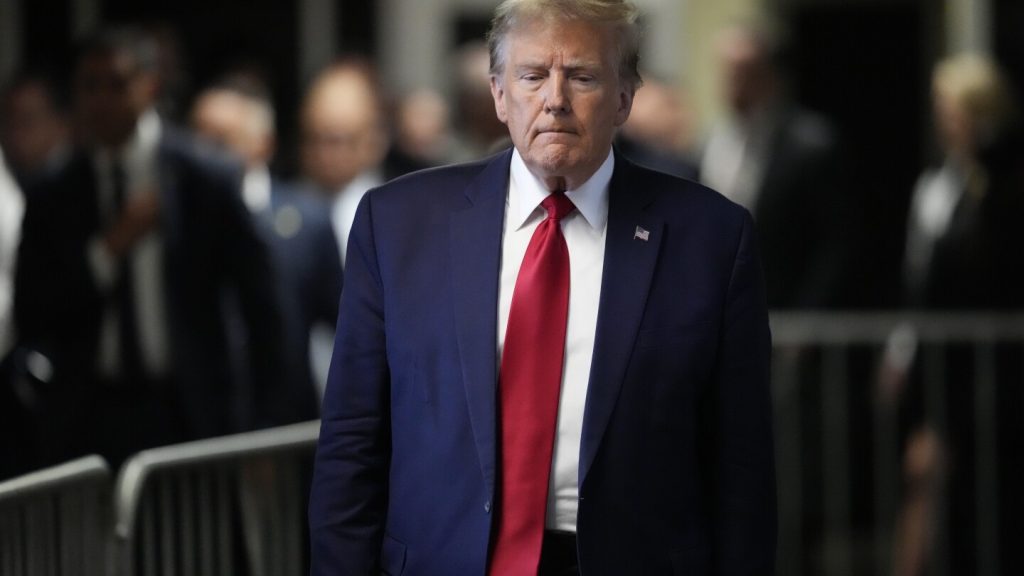The hush money trial of former President Donald Trump has begun in a landmark moment for American history. This is the first criminal trial of a former commander in chief and the first of Trump’s four indictments to go to trial. As Trump is the presumptive nominee for the Republican ticket, the trial will showcase the unique situation of a presidential candidate spending his days in court while campaigning at night. It is also seen as a trial of the justice system itself as it grapples with a defendant who has attacked the judge, prosecutors, witnesses, and the allegations against him, undermining the legitimacy of the legal structure.
Jury selection for the trial is set to begin, with ordinary citizens being called into a courthouse to determine if they can serve on the jury fairly and impartially. The key issue is whether prospective jurors can set aside personal feelings and biases to make a decision based on evidence and the law. Trump has pleaded not guilty to 34 felony counts of falsifying business records in an alleged effort to keep salacious stories about his sex life from emerging during his 2016 campaign. The charges revolve around payments made to his lawyer, Michael Cohen, to prevent porn actor Stormy Daniels from going public with claims of a sexual encounter with Trump.
Trump has vehemently denied the charges against him, portraying them as part of a broader “weaponization of law enforcement” by Democratic prosecutors and officials. He accuses them of orchestrating sham charges to hinder his presidential run. If convicted, Trump could face up to four years in prison, but a no-jail sentence is also possible. The trial of an ex-president and current presidential candidate is a moment of great significance for the American political system, highlighting the unprecedented nature of such a scenario which would have once seemed unthinkable. There is likely to be a spectacle outside the courtroom, with supporters and protesters gathering during the trial.
The defense team for Trump has tried to get the hush money case dismissed and has sought multiple delays, leading to last-minute appeals court hearings. They argue that the jury pool in Manhattan, where the trial is taking place, has been tainted by negative publicity about Trump and have requested a change of venue. Prosecutors contend that fair and impartial jurors can be found in Manhattan despite the publicity. The selection process for the jury will begin with prospective jurors entering the courtroom, known only by number to maintain secrecy. They will be asked questions to determine their ability to serve impartially, including their opinions on Trump and his treatment in the case.
The prospective jurors will be questioned based on a set of preapproved queries that reflect the unique nature of the case. Questions will focus on opinions about Trump, attendance at rallies, news sources, and any beliefs that could impact their ability to be fair and impartial. Attorneys can request to eliminate jurors for cause if they show bias, or use peremptory challenges to exclude individuals without giving a reason. The judge overseeing the case has noted the challenges of striking a balance in jury selection to ensure a fair trial. Despite the contentious nature of the trial and the political implications, the process of selecting a jury will proceed with careful consideration to uphold the principles of justice.


